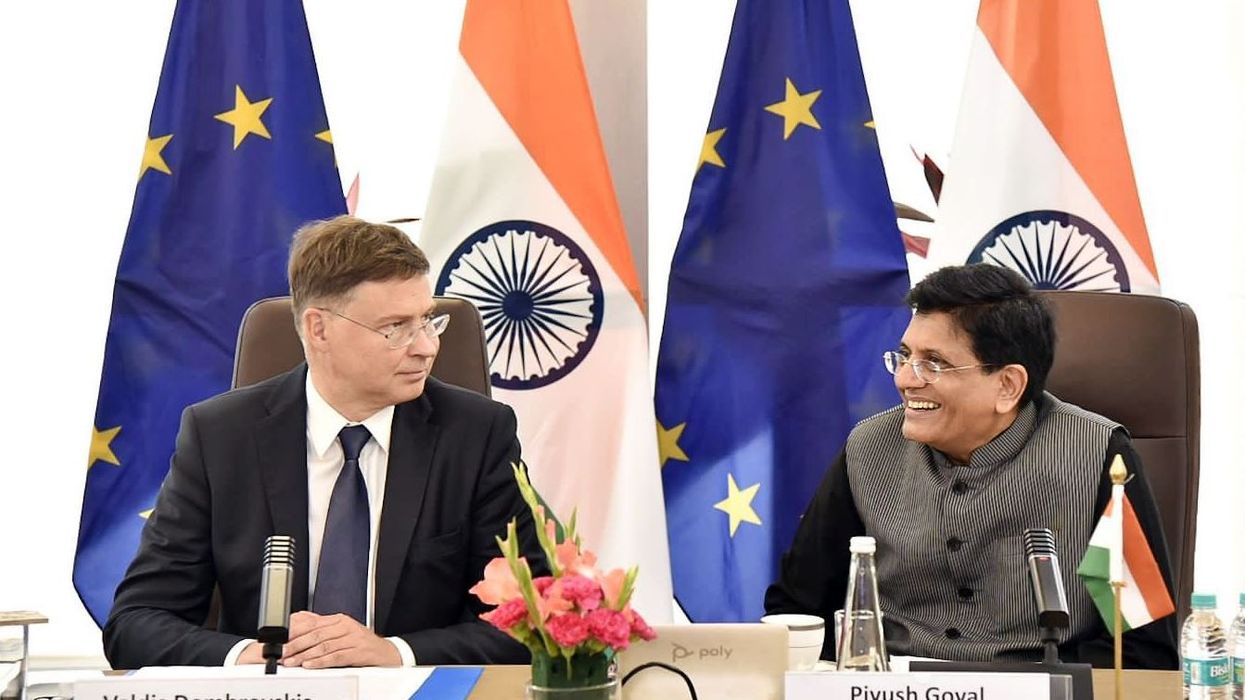THE European Union last Saturday (26) voiced concerns over a “rapid” rise in refined petroleum products made from Russian crude oil in India finding their way to the European market.
Valdis Dombrovskis, the EU executive vice-president and commissioner for trade, said oil products processed from Russian crude oil were arriving in the European market in “large quantities”.
Dombrovskis, who was on a visit to India, accused Russia of using its energy supplies, and food as “tools of war and manipulation” to continue its attack on Ukraine. He cited Russia’s withdrawal from the Black Sea grain initiative and blocking Ukraine’s export of food grain to the world market, as examples.
Since Russia’s invasion of Ukraine in February last year, Western powers imposed sanctions on Moscow, including a price cap on Russian oil by G7-plus nations, to reduce its ability to finance the war on Ukraine.
India, which has not condemned Russia’s invasion, has procured discounted crude oil from the country, and imports have risen in the past year.
“We are obviously aware that a number of countries, including China and India, have not joined those sanctions. We are aware that Russia is actively seeking alternative markets for the lost European market,” Dombrovskis told reporters.
The EU trade commissioner’s comments came in response to a question about India’s trade relations with Russia, especially its procurement of discounted Russian crude oil.
“We indeed see new trade patterns emerging. Those are some issues which are also the new developments which we are currently assessing. For example, what we see is now a rapid increase of refined oil products, so to say, imports in the EU from India.
“But if they are made with Russian oil, in a sense it defies the purpose which we are putting in front of us as the EU, as a Western democratic world, to reduce Russia’s ability to wage the civil war,” Dombrovskis said.
“So this is something which will provide some reflection on that,” the top trade official added. He said sanctions were imposed against Russia, including in the area of exports of oil and oil products, as energy supply was Russia’s “biggest source” of revenue.
“We want to reduce Russia’s ability to finance the war,” he said.
On EU’s trade ties with India, the trade commissioner said the bloc was looking at significantly expanding economic engagement with New Delhi.
“The EU is India’s second-largest trading partner, accounting for some €120 billion (£103bn) worth of trading last year, which is 10.8 per cent of total Indian trade.
“And India is the EU’s 10th-largest trading partner, accounting for two per cent of EU total trade. But at the same time, we see there is still lots of untapped potential.”
The EU was looking at making sure that its trade and investment cooperation with India became much “more intense”, he added. “We know that we are currently working in a conflictual geo-political situation. And in this context, the value of trust and reliability has increased substantially.”
“So, we also see Russia’s instrumentalisation of its energy supplies and now food as tools (of) weapons of war and manipulation – there is no such thing as just goods or political trade,” the trade official said.
“So it’s all linked together – trade matters, geopolitics. But also, friendships matter. So that’s why the EU-India strategic partnership is so important.” Dombrovskis believed that India and the EU needed to work together to address “big challenges” facing the globe. “We are also the world’s two largest democracies, and we need to work together to address the big challenges of our time,” he said.
India and the EU are currently in talks to conclude three agreements – the free trade pact (negotiations were relaunched in 2022), an investment protection agreement and the geographical indications deal.
The trade and economic ties between India and the EU have been on an upswing in the last few years.
In April last year, the two sides announced the setting up of an India-EU Trade and Technology Council (TTC).
The TTC is aimed at facilitating the exchange of critical technologies relating to an array of domains including artificial intelligence, quantum computing, semiconductors and cybersecurity.
The TTC with India is the EU’s second such technology partnership, after the first one with the United States was firmed up in June 2021.




